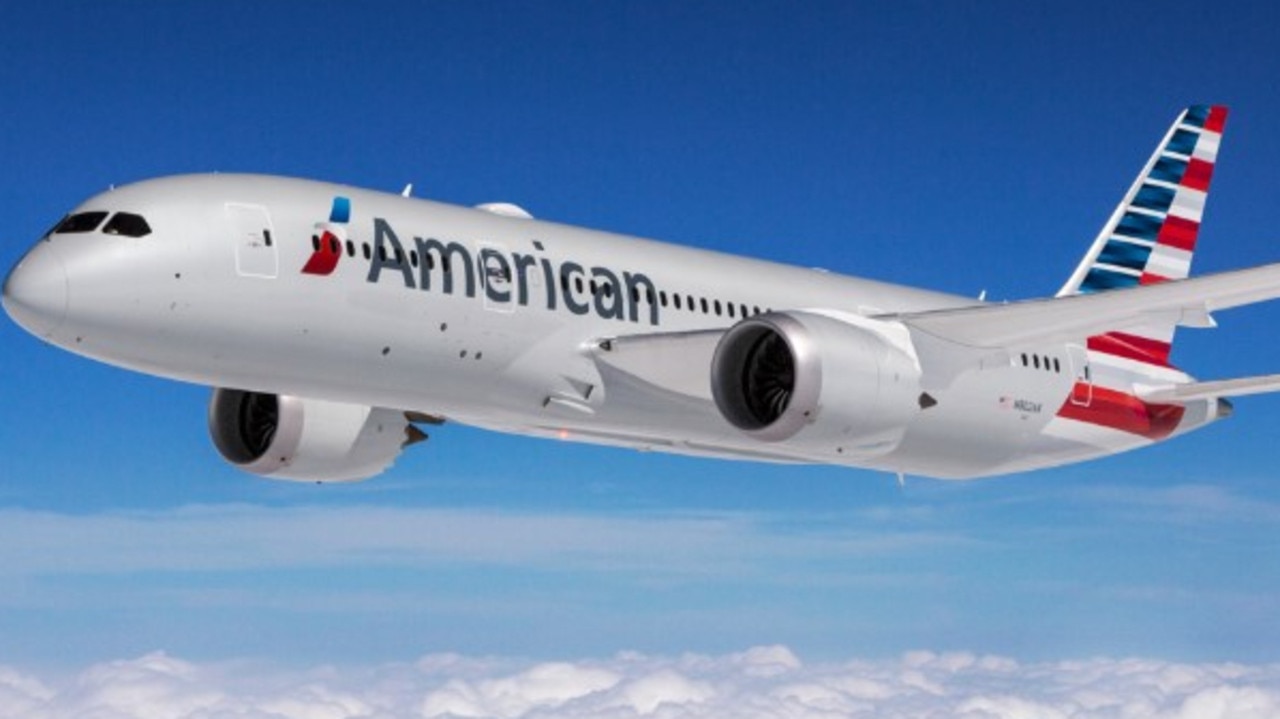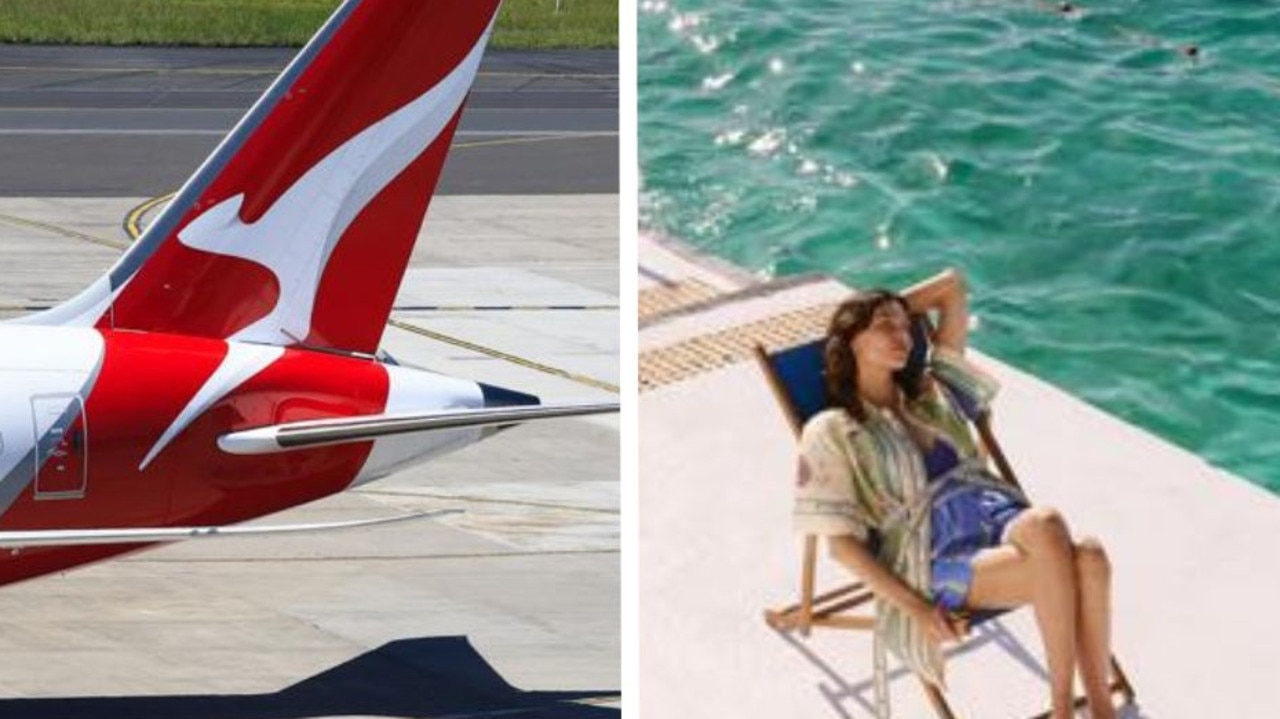It’s easier to get a US visa than you think
HOW many Aussies have dreamt of making it in the Big Apple or Tinseltown but thought it too hard? It’s really, really not.

MICHAEL Kogan was looking for the next step in his career.
The former Macquarie Bank actuary and his wife felt they had limited opportunities in Sydney, so they applied for visas and relocated to New York City. For the last three years, he’s been working on Wall Street, and the couple just welcomed their first child — who is an American citizen by birth. “Working on Wall Street is intense, you are competing with some of the smartest people in the world. The thrill of learning something new each day is what gets me up in the morning,” he told news.com.au. As for the paperwork, he said: “The application process was pretty easy.” Hang on a minute. Getting a visa was easy? When you think of “easy” countries to get a visa, the United Kingdom and Canada spring to mind. Not the United States, with its never-ending piles of paperwork, hard-to-decipher rules, and intimidating law enforcement agencies. Right? While that may be true for prospective workers from other countries, Australians are in an extremely privileged position. Thanks to the Free Trade Agreement negotiated between the Bush and Howard governments in 2005, the US offers a special visa category — the E3 — created specifically to make it easy for Australians. However, while 10,500 places are up for grabs each year, James Carouso — Charge d’Affaires at the US Embassy in Canberra — said only 3000 were snapped up. Speaking at the Qantas launch of G’Day LA, he said he wanted to promote the scheme and encourage more Australians to apply. All you need to be eligible is a job offer in a “specialty occupation” and you must have “specialised knowledge”. Basically, it’s open to everyone from professionals to tradies, as long as they have a degree or equivalent work experience. Eden Ng is a 26-year-old marketing manager from NSW. She spent four months travelling in the US before securing a job in July 2015, and said finding work really depends what industry you’re in. “I had plenty of friends working in finance who snapped up jobs within weeks, whereas I really made life hard for myself,” she told news.com.au. Ms Ng’s background is in finance, but she wanted to switch careers to consumer marketing. It was a tough industry to crack, because she said many companies preferred hiring locals who were already across the American consumer landscape. In the end, she found work by contacting recruiters, uploading her resume onto career websites, and being prepared to explain the visa to prospective employers. “Usually, the word ‘visa’ scares companies off, so I would always come prepared to interviews with a one-page document explaining the process of obtaining an E3.” Many working visas place a significant financial burden on employers and require them to prove the applicant is the only person capable of doing a specific job. The E3, on the other hand, simply requires the company to file a form with the American Department of Labour. Erin White, a 29-year-old speech pathologist from Geelong, has been living in New York for the past 10 months. Her job requires state and national licensing and certification, but once she had that, she agreed getting the visa was a “breeze”. She works at a private school for children with language-based learning impairments, and once she got the job offer, she went to Barbados to get the paperwork processed. Her consulate interview lasted just two minutes, and it took 14 days to be finalised. “The visa process was new to my employer, so I put together a flow chart of the process to show them how easy it was, and how little they had to do. I think the fact that it didn’t cost them anything and could be processed quickly was a big drawcard,” she told news.com.au. The E3 expires every two years, however, unlike most categories it can be renewed an indefinite number of times. Best of all, there’s no age limit. She loves New York so much she’s considering extending her visa in 2018. “It’s such a vibrant, interesting, always-changing city and I was keen to be a small fish in a big pond. The USA in general, and NYC in particular, offer so many opportunities for professional development in my field,” she said. Brooke Caldwell, a public relations director from Parkes in NSW, moved to New York the day after she graduated from the University of Wollongong. She’s been working there for five years, and her third E3 visa has just been approved. “My two renewals have been beyond simple,” she told news.com.au. She found her job online and interned for a month before being offered a job as an assistant, and her career has soared from there. It’s been tough at times. New Yorkers work around the clock, basic things like health insurance are really expensive, and the weather can be extreme. “The hustle is hard and real,” she said, although she acknowledged the culture in other parts of the US is different to that of the Big Apple. “I never thought I would still be living in the US five years later, let alone working for the same company, as it is incredibly rare for anybody in New York to stick with the same company this long. But when it fits, it fits.” So what’s the best advice for prospective applicants? Mr Kogan advises looking for jobs in person and having a local address on your CV. “Getting a job offer was difficult, but once I found a job that matched my skills and experience it was pretty easy getting an offer,” he said, adding it took three months to land his first job. “Be prepared for setbacks when you get here, but if you are qualified and willing to work hard, you should have no problem finding your next opportunity.” Ms White recommends doing your research, so you understand how your field of work operates in the United States and how to market yourself to prospective employers. She said it’s also important to be able to clearly and confidently explain the benefits of the E3 visa. “It can help to explain that the E3 is similar to the TN visa for Canadians — they may be more likely to have had experience hiring Canadians,” she explained. She also said it’s important talk to as many people as possible and reach out to other expats, who have forged the path before you. “You never know what doors will open to you and what networks you will make just by telling people your plans.” “What’s to lose?” asked Ms Caldwell. “It’s not for everybody, but I say if you are thinking about it — just do it. Because I wasn’t even contemplating it and it happened, and I couldn’t even imagine where and what I would be doing if it wasn’t this.” Find out more about visas to the United States here. kirrily.schwarz@news.com.au




